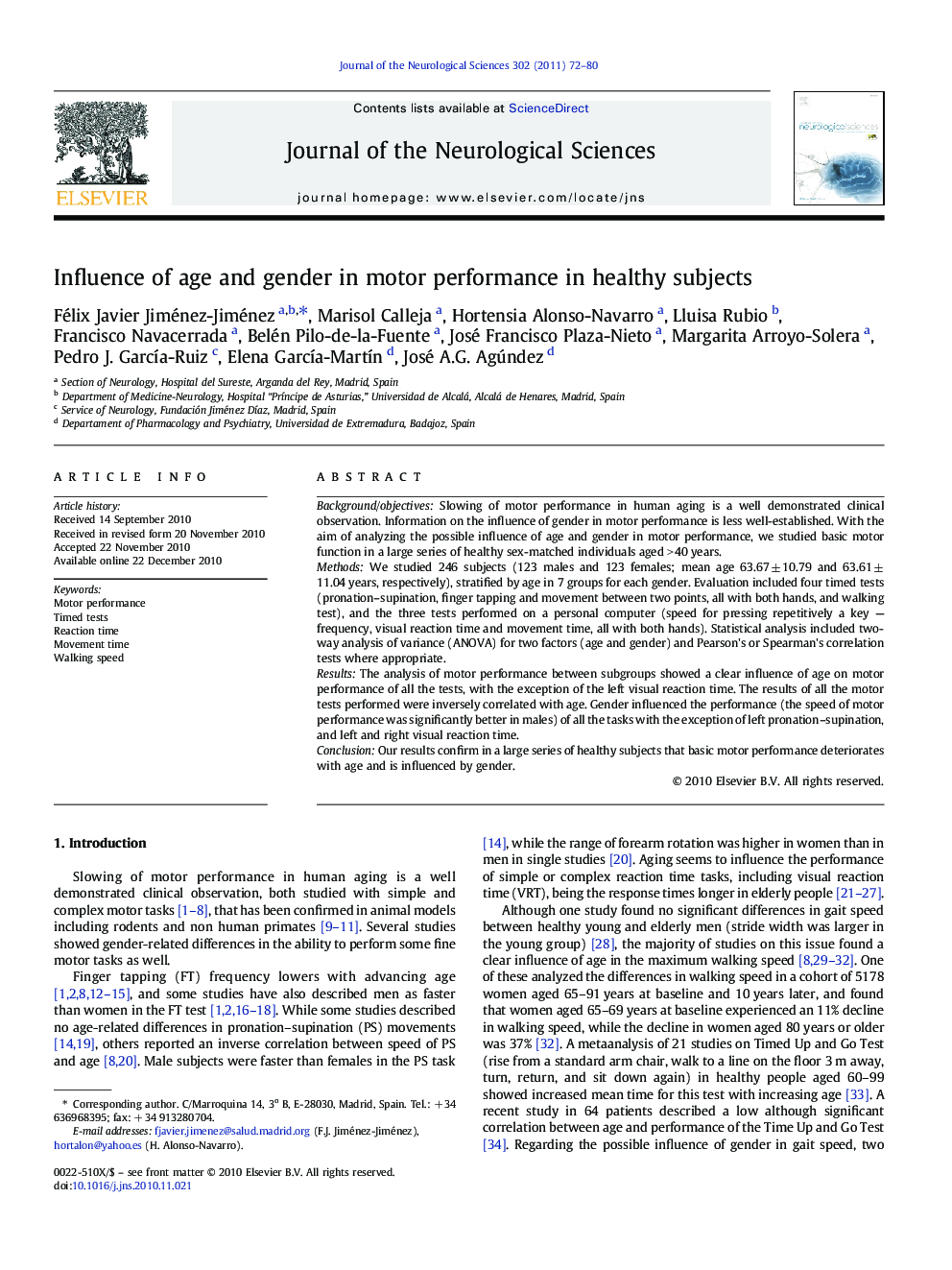| Article ID | Journal | Published Year | Pages | File Type |
|---|---|---|---|---|
| 1914272 | Journal of the Neurological Sciences | 2011 | 9 Pages |
Background/objectivesSlowing of motor performance in human aging is a well demonstrated clinical observation. Information on the influence of gender in motor performance is less well-established. With the aim of analyzing the possible influence of age and gender in motor performance, we studied basic motor function in a large series of healthy sex-matched individuals aged > 40 years.MethodsWe studied 246 subjects (123 males and 123 females; mean age 63.67 ± 10.79 and 63.61 ± 11.04 years, respectively), stratified by age in 7 groups for each gender. Evaluation included four timed tests (pronation–supination, finger tapping and movement between two points, all with both hands, and walking test), and the three tests performed on a personal computer (speed for pressing repetitively a key — frequency, visual reaction time and movement time, all with both hands). Statistical analysis included two-way analysis of variance (ANOVA) for two factors (age and gender) and Pearson's or Spearman's correlation tests where appropriate.ResultsThe analysis of motor performance between subgroups showed a clear influence of age on motor performance of all the tests, with the exception of the left visual reaction time. The results of all the motor tests performed were inversely correlated with age. Gender influenced the performance (the speed of motor performance was significantly better in males) of all the tasks with the exception of left pronation–supination, and left and right visual reaction time.ConclusionOur results confirm in a large series of healthy subjects that basic motor performance deteriorates with age and is influenced by gender.
